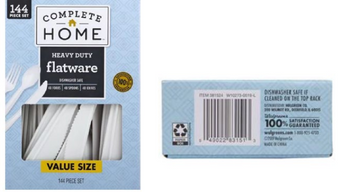On Wednesday, we posted about the ASA's decision to ban this ad for Calvin Klein, featuring the singer FKA Twigs on the basis that, “The ad used nudity and centred on FKA Twig’s physical features rather than the clothing, to the extent that it presented her as a stereotypical sexual object. We therefore concluded ad (a) was irresponsible and likely to cause serious offence.”
There were only 2 complaints about the ad, suggesting that any offence caused by the ad was not likely to be that serious or that widespread, particularly given that this was a poster ad seen by a large number of people. However, the ASA's decision has seriously offended FKA Twigs, who has come out swinging in her response posted on Instagram.
We assume that FKA Twigs had approval rights over the use of her image. So has the ASA's decision denied this individual woman the right to express herself in the way that she wants? As an artist, her right to express herself is no doubt very precious to her, but the ASA have subordinated that right in favour of their own views about the objectification of women.
Her post says:
"i do not see the ‘stereotypical sexual object’ that they have labelled me. i see a beautiful strong woman of colour whose incredible body has overcome more pain than you can imagine.
in light of reviewing other campaigns past and current of this nature, i can’t help but feel there are some double standards here. so to be clear…
i am proud of my physicality and hold the art i create with my vessel to the standards of women like josephine baker, eartha kitt and grace jones who broke down barriers of what it looks like to be empowered and harness a unique embodied sensuality. thank you to ck and mert and marcus who gave me a space to express myself exactly how i wanted to - i will not have my narrative changed."
Her point about double standards is well made. There are certainly examples of other ads that appear to be more egregious than this one in their objectification of women, but which have not led to upheld complaints. However, to be fair to the ASA, those examples may have involved the Lingerie Defence discussed previously.
It is also striking that FKA Twigs is not a professional model who had no agency in the publication of this image. She is an artist, who associates herself with some of the major female singers of colour of the twentieth century, such as Josephine Baker, Eartha Kitt and Grace Jones. We assume she had approval over the use of her image, and that assumption is confirmed by her Instagram post.
And yet while the ASA asked Calvin Klein for a response, as well as BuildHollywood, who owned the relevant poster sites, it seems that they omitted to ask FKA Twigs for her opinion. So who is guilty of her objectification?



/Passle/5ca769f7abdfe80aa08edc04/SearchServiceImages/2026-01-05-19-20-06-462-695c0ee6274a2eaabbabd008.jpg)
/Passle/5ca769f7abdfe80aa08edc04/SearchServiceImages/2026-01-05-19-14-34-741-695c0d9a8674a83eb907512c.jpg)
/Passle/5ca769f7abdfe80aa08edc04/SearchServiceImages/2026-01-05-19-09-28-382-695c0c68f06df27e38576210.jpg)